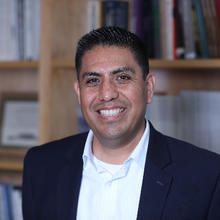The Southern California Research Initiative for Solar Energy Group (SC-RISE)

About SC-RISE
The Southern California Research Initiative for Solar Energy (SC-RISE) advances solar energy research, deployment, and policy engagement through three interrelated pillars:
-
The Advanced Materials and Energy Devices Laboratory (AMEDL) conducts fundamental research and technology development to improve solar energy generation and energy conversion.
-
The Distributed Energy Resources Laboratory (DERL) focuses on applied research in grid integration, green infrastructure, and clean energy systems.
-
The Solar Valley Consortium (SVC) collaborates with public and private stakeholders to position Riverside and San Bernardino Counties as regional leaders in solar innovation and policy.
Together, these programs support California’s clean energy transition by enabling the development, demonstration, and implementation of solar and renewable energy solutions in real-world contexts.
Research and Impact
SC-RISE combines scientific research, applied engineering, and stakeholder engagement to accelerate the adoption of solar energy and distributed clean technologies. Through regional partnerships, interdisciplinary projects, and field-based demonstrations, the initiative addresses technical, environmental, and policy challenges that shape California’s clean energy future. The team’s work supports resilient infrastructure, equitable energy transitions, and practical solutions for large-scale solar deployment and integration.
-
Solar Deployment Strategy and Land Use Innovation
Through initiatives like SOLSTICE, the SC-RISE team explores land and transmission availability in the Inland Empire to support statewide solar and storage targets. By working with state and local agencies, utilities, and developers, the team develops strategies to overcome barriers in permitting, environmental review, and infrastructure planning. This work is critical to achieving California’s ambitious clean energy deployment goals while advancing environmental justice in historically underserved communities.
-
Advancing Regional and Tribal Energy Resilience
In collaboration with the Fernandeño Tataviam Band of Mission Indians and partners such as Climate Resolve and the Council for Watershed Health, SC-RISE supported the development of a Tribal Climate Resiliency Plan. Integrating traditional ecological knowledge with solar energy strategies, the plan outlines a path toward community-led adaptation, clean water security, forest health, and fossil fuel transition through solar-powered infrastructure and inclusive engagement.
-
Solar-Powered Transportation Infrastructure
With support from Caltrans, researchers are assessing the feasibility of solar-integrated bike pathways as part of a broader strategy to decarbonize transportation infrastructure. The project examines technical, economic, and environmental dimensions to inform sustainable mobility planning in Riverside and beyond.
-
International and Cross-Border Collaboration
SC-RISE supports student training and binational research through programs like STREAM-ITL, a collaboration with the Instituto Tecnológico de Hermosillo and the Sonora Energy Cluster. UCR students gain hands-on experience in solar energy, IoT systems, and sustainable development through workshops, site visits, and joint research with Mexican institutions.
-
Thought Leadership in Renewable Energy Policy
SC-RISE researchers are active participants in global and regional energy dialogues. The team regularly contributes to panels, policy briefings, and international conferences, including the ENERBAJA Forum on Electric Mobility and the IEEE Global Energy Conference, which brought together over 100 researchers from 24 countries to discuss smart grids, solar deployment, and integrated energy systems.
